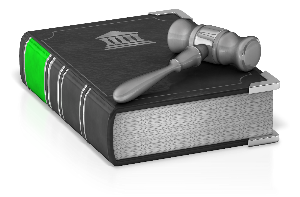
Criminal Appeals Policies
Extensions of Time
Any request for an extension of time to file a brief in a criminal appeal must be made by filing a motion that sets forth good cause for the extension. Conclusory statements asserting “scheduling conflicts” or “other work” will not constitute good cause for an extension of time. In determining whether to grant an extension, the court will consider, among other factors:
- when counsel was appointed in the matter,
- whether counsel’s inability to timely complete the brief is the result of circumstances that could not have been anticipated,
- the complexity of the appeal, the length of the trial resulting in the verdict on appeal,
- counsel’s diligence,
- the size and workload of counsel’s law firm or agency,
- the number of other appeals on counsel’s docket,
- the briefing schedules of other appeals on counsel’s docket, and
- counsel’s diligence in those other appeals.
The court will only grant an additional extension if the motion provides new and unforeseen circumstances that justify another extension.
If a party has not obtained an order extending time prior to the deadline to file, the brief must be timely filed. To ensure enough time for processing, the court encourages parties to file a motion for extension of time to file a brief at least 5 business days prior to the deadline.
If counsel does not timely file a brief, the court will order counsel to appear and show cause why the court should not impose sanctions.
If a party files a brief after the deadline, it must be accompanied by a motion to accept the brief that demonstrates good cause for the late filing. If the court finds that a request to accept an untimely brief is not supported by good cause, it will order counsel to appear and show cause why the court should not impose sanctions.
Requests to Supplement the Record
Arizona Rule of Criminal Procedure 31.8(b)(1)(B) provides that, in every criminal appeal except one in which the death penalty has been imposed, certified transcripts of specified core proceedings in the superior court must be prepared and filed with the Court of Appeals. Under Rule 31.8(b)(2), within thirty days after filing of the notice of appeal, an appellant may request that the court reporter prepare transcripts of additional proceedings not specified in Rule 31.8(b)(1)(B). Pursuant to Division One Administrative Order 2019-__, absent good cause, any request by a party to supplement the record pursuant to Rule 31.8(b)(2) must be made no later than 30 days following the Clerk’s issuance of the Notice of Completion of record pursuant to Rule 31.9(e), or no later than 30 days after counsel’s appointment, whichever is later. A party asserting good cause for a request to supplement the record will be expected to demonstrate diligence in the prosecution of the appeal, including timely review of the record and determination of the issues the party intends to raise on appeal, and to provide details explaining why the need for the transcript was not discovered earlier.
Management Conferences
In an appeal from a lengthy trial or in which the record or legal issues are particularly complex, the Court, in its discretion or at the request of a party, may schedule a management conference to set deadlines for the supplementation of the record and the filing of briefs. Counsel desiring such a management conference must file a request within 30 days of issuance of the Clerk’s Notice of Completion or within 30 days of counsel’s appointment, whichever is later.